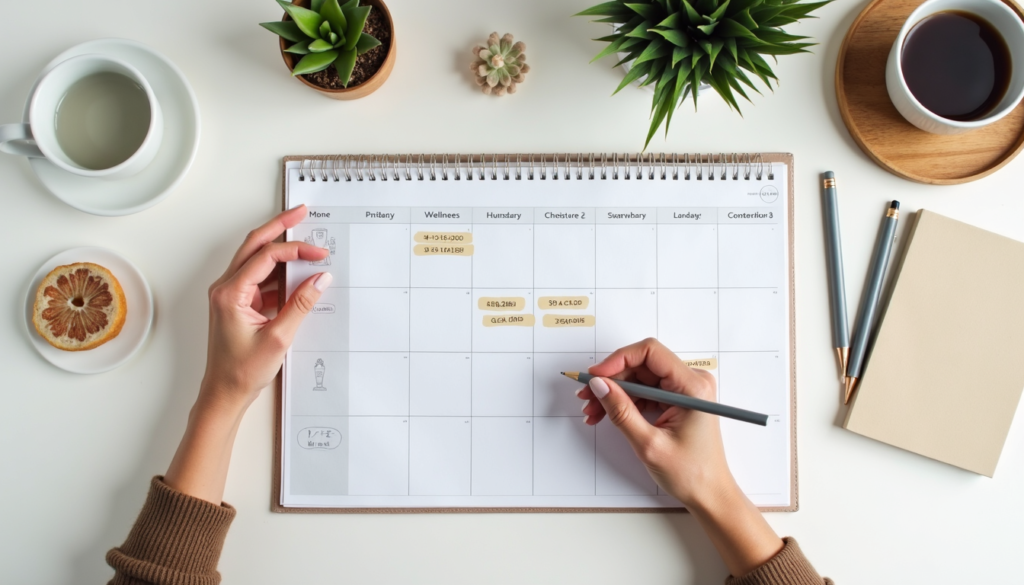Rest for Success, Have you ever felt drained after a long week, even when you’ve worked just as hard as usual? Many people underestimate the power of rest. Rest for success is essential, as it boosts creativity, productivity, and overall well-being. In a fast-paced world filled with distractions, taking time to recharge can set the foundation for achieving personal and professional goals.
Research shows that even the most successful individuals prioritize rest. They understand that true productivity does not solely come from relentless work, but rather from a balanced approach that includes downtime. Incorporating periods of rest allows the mind to recuperate, leading to clearer thinking and better problem-solving skills.
By recognizing the importance of rest, individuals can break free from the cycle of burnout and stress. Simple changes, like scheduling short breaks throughout the day or setting aside time for relaxation, can lead to profound improvements in both focus and output. Engaging with this concept can help anyone looking to improve their performance and satisfaction in life.
Why Rest For Success Is The Missing Key

Many people chase success without realizing the importance of rest. Rest is essential for maintaining high performance and creativity.
When individuals take time to rest, they often find they have clearer thoughts. This clarity can lead to better decision-making and innovative ideas. For example, a short walk or a few minutes of deep breathing can refresh the mind significantly.
Shifting your mindset about rest is key. It’s not about working less—it’s about working smarter. Balancing work and rest can lead to greater productivity. Here are some effective methods to integrate rest into a busy schedule:
- Take short breaks every hour. Just five minutes can help recharge energy.
- Practice mindful breathing or meditation to foster mental calmness.
- Schedule longer rest periods on weekends or days off to disconnect entirely.
Real-life stories from successful entrepreneurs often highlight their rest routines. They emphasize how stepping away from their work led to breakthroughs in their projects. For instance, many successful leaders embrace activities like hiking or yoga as vital parts of their routine.
Incorporating rest into daily life can transform how one approaches tasks. It is not just about sleeping; it is about resting to boost overall well-being and success. Try setting aside time today for a restorative activity and notice how it impacts your focus and energy levels.
The Science Behind Rest And Peak Performance

Rest plays a vital role in enhancing performance. It is during recovery that the body repairs and builds strength. This process is essential for peak performance.
How Rest Improves Productivity
- Cognitive Benefits: Taking breaks fuels the brain. Studies show that short rest periods can boost focus and creativity.
- Memory Retention: Resting helps consolidate memories. It aids in learning and retention, making information more accessible when needed.
Why Recovery Matters for Performance
- Physical Repairs: Muscles recover and grow during rest. This leads to improved strength and endurance.
- Reduced Burnout: Proper rest prevents fatigue and maintains motivation. Keeping a balance helps sustain performance over time.
Real-life examples illustrate the importance of rest. Athletes often schedule rest days to ensure they can perform at their best. Have you noticed how much more engaged you feel after a good night’s sleep?
Incorporating regular breaks in daily routines enhances not just individual performance, but also team dynamics. Teams that prioritize rest often achieve more cohesive results.
To improve productivity, he suggests integrating short breaks into the work schedule. This simple strategy can lead to significant gains in overall performance, both mentally and physically.
Rest For Success – A Strategy, Not An Excuse

Rest is essential for maintaining high performance and achieving success. It should not be seen as an excuse to avoid work, but rather a strategic choice. Smart rest strategies can lead to better results in personal and professional life.
Benefits of Resting
- Boosts Creativity: Taking breaks allows the mind to reset. This often leads to fresh ideas when returning to tasks.
- Enhances Decision Making: A rested mind can analyze situations better and make thoughtful choices.
- Improves Focus: Short periods of rest help maintain high levels of concentration over time.
Smart Rest Strategies
- Scheduled Breaks: Set specific times during the day to step away from tasks. Use this time to stretch or take a quick walk.
- Mindful Moments: Practice deep breathing or meditation to recharge in just a few minutes.
- Quality Sleep: Prioritize getting enough rest at night. Good sleep is vital for overall health and productivity.
Have you ever felt overwhelmed by tasks? Implementing rest strategies can change the workload experience.
For busy professionals, recognizing the value of rest can lead to a healthier work-life balance. Rest is not a luxury; it is a key element in achieving lasting success.
Different Types Of Rest That Maximize Performance

Rest is essential for achieving peak performance, but not all rest is the same. Different types of rest target specific areas of recovery, helping to restore both mind and body.
- Sensory Rest
This type of rest reduces sensory input. It involves taking breaks from screens and noise to allow the mind to relax. Quiet environments help individuals regain focus. - Creative Rest
Engaging in activities that inspire creativity can boost performance. A walk in nature or visiting an art gallery can provide rejuvenation and new ideas. - Mental Rest
Mental breaks are vital for clear thinking. Taking short pauses during work can enhance concentration and prevent burnout. - Emotional Rest
Sharing feelings and thoughts can lighten emotional burdens. Talking with a friend or writing in a journal can lead to emotional clarity. - Social Rest
While socializing is enjoyable, it can also drain energy. Balancing social interactions with downtime can improve energy levels. - Physical Rest
This includes both active and passive rest. Good sleep is essential, but gentle activities like stretching can also help recharge the body. - Spiritual Rest
Connecting with one’s beliefs or values provides inner peace. Meditation or spending time in nature can fulfill this need.
Top performers often prioritize these types of rest without feeling guilty. They understand that rest contributes to long-term success. Encourage yourself to integrate different rest types into daily routines. Try it today and notice the difference it makes in productivity.
How To Apply ‘Rest For Success’ In Daily Life

Incorporating rest into daily life can boost productivity and prevent burnout. Here are practical ways to do this.
Set Boundaries
Creating clear work-life boundaries is essential. Designate specific times for work and downtime. This helps keep work from invading personal time.
Take Breaks Regularly
Short breaks throughout the day can recharge energy. A simple technique is the Pomodoro Technique: work for 25 minutes and then take a 5-minute break.
Prioritize Sleep
Sleep is crucial for success. Aim for 7-9 hours of quality sleep each night. A consistent sleep schedule improves focus and performance.
Mindful Moments
Incorporate mindfulness into daily routines. Spend a few minutes in quiet reflection or meditation to clear the mind and reduce stress. This technique enhances clarity and decision-making.
Engage in Relaxing Activities
Find activities that promote relaxation, such as reading, walking, or yoga. These can help rejuvenate the mind and body.
Plan ‘Rest Days’
Just like workouts, plan specific days for rest. This helps in avoiding burnout naturally by allowing time for full recovery.
Stay Hydrated and Nourished
Good nutrition and hydration support energy levels. Eat balanced meals and drink plenty of water to stay energized throughout the day.
By applying these methods, anyone can effectively manage their rest to enhance success and productivity. Try these tips and notice how they improve daily routines.
Conclusion – Why Rest Is The Ultimate Competitive Advantage

Rest is not just a break; it is essential for resilience and high performance. People often overlook its importance, but adequate rest can significantly boost productivity and overall well-being.
When individuals are well-rested, they show improved:
- Cognitive function: Better focus and clearer thinking.
- Emotional regulation: Enhanced stress management for difficult situations.
- Decision-making: More thoughtful choices lead to better outcomes.
Consider athletes like Roger Federer. He emphasizes taking time to rest, which helps him perform at his best over years. This focus on recovery is a strategy anyone can apply.
Creating a routine that includes rest can lead to sustainable high performance. Engaging in regular breaks throughout the day can improve creativity and prevent burnout.
Here are practical tips to incorporate rest:
- Set specific short breaks every hour.
- Prioritize a good night’s sleep.
- Use weekends for relaxation and hobbies.
Have you noticed how pushing through fatigue reduces your effectiveness? By prioritizing rest, a person can tap into their full potential.
Rest isn’t a luxury—it’s the ultimate advantage. The best performers know that rest for success isn’t time lost, but time invested in achievement. Will you take the first step today? When individuals understand and apply this principle, they can unlock greater success and resilience in their personal and professional lives.




